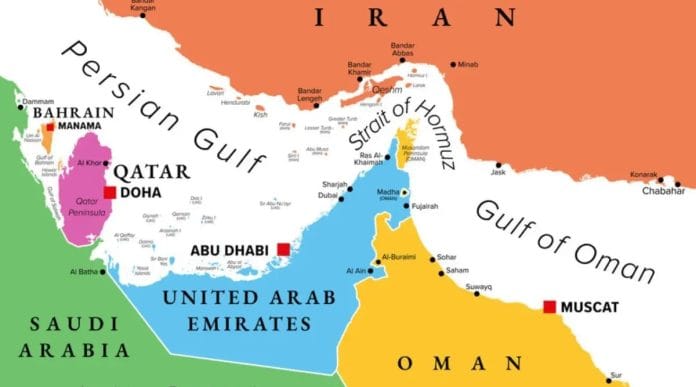Bangladesh’s crude oil imports from Saudi Arabia and Abu Dhabi will remain uninterrupted even if the Strait of Hormuz is closed due to the ongoing Iran-Israel conflict, thanks to an alternative supply route via the Fujairah Terminals in Abu Dhabi, a top official has confirmed.
“Suppliers have assured us that 1.4 to 1.5 million metric tonnes of crude oil per year will be delivered through the Fujairah route if the Strait of Hormuz becomes inaccessible,” Bangladesh Petroleum Corporation (BPC) Chairman Md. Amin Ul Ahsan told Just Energy News on Monday.
Bangladesh annually imports crude oil worth approximately US$1.05 billion from Saudi Arabia and Abu Dhabi, with the Strait of Hormuz serving as a critical transit point. “We only use the Strait of Hormuz for crude oil shipments,” Ahsan said.
The BPC chairman also expressed concern over rising global oil prices amid escalating tensions in the Middle East. “Since the Iran-Israel conflict began, global crude prices have jumped by $9–10 per barrel,” he noted.
Fuel Tariff Adjustment on the Table
Ahsan indicated that domestic fuel tariffs may be revised if the conflict persists and prices remain elevated.
“BPC recently loaned Tk 2,000 crore to state-owned Petrobangla from profits on local fuel sales. However, depending on how long this crisis lasts, a tariff adjustment may be necessary,” he said.
At present, BPC spends between $450 million and $500 million monthly to import and refine petroleum products.
Strategic Reserves Ensure Short-Term Stability
Despite global uncertainties, Bangladesh is prepared for short-term supply disruptions. “We have a strategic reserve of crude oil sufficient for 45 days, and another 7–8 vessels are currently in the pipeline,” Ahsan said.
The decision to activate the Fujairah route is part of broader efforts to safeguard Bangladesh’s energy security amid rising geopolitical risks in the Gulf region.

